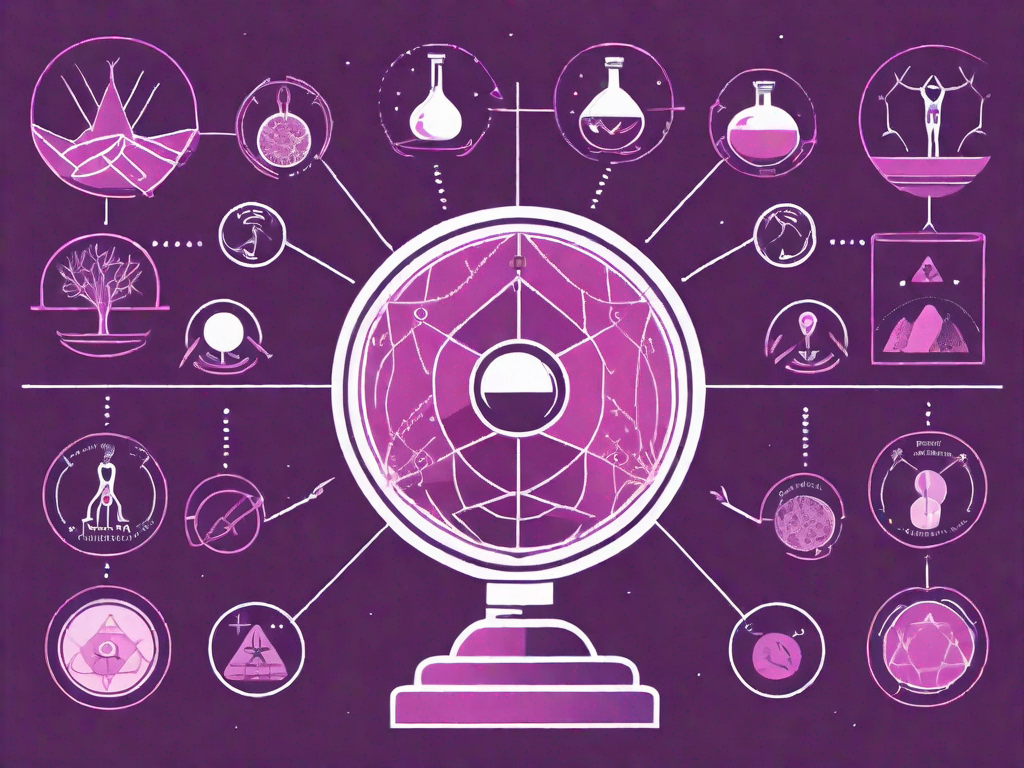This article debunks common myths about cancer symptoms, emphasizing that pain isn’t always present, feeling healthy doesn’t guarantee absence of cancer, and not all lumps indicate cancer. It stresses the importance of regular check-ups and screenings for early detection. Weight loss, smoking, sunburn, and blood in stool are discussed as potential symptoms or risk factors. By addressing misconceptions, it empowers readers to stay informed and seek professional guidance for any concerns, promoting proactive health management and informed decision-making. Stay proactive, informed, and don’t hesitate to reach out for support in your health journey.
Many people have misconceptions about cancer symptoms. These myths can often lead to unnecessary worry and anxiety. In this article, we will debunk some common misconceptions and provide you with the facts. It’s important to remember that every individual is unique, and symptoms can vary from person to person. If you are experiencing any concerns or have questions, it’s always best to consult with a healthcare professional.
Myth 1: Cancer Always Causes Pain
Cancer does not always cause pain. In fact, many individuals with cancer may not experience any pain at all, especially in the early stages. Pain can vary depending on the type and stage of cancer. It’s essential to pay attention to any unusual changes in your body and not solely rely on the presence of pain as a symptom of cancer.
When it comes to cancer, pain is not always the first sign or symptom that individuals experience. In some cases, cancer can develop silently, without causing any noticeable discomfort. This can make it challenging to detect cancer early on, as pain is often associated with seeking medical attention. Therefore, it is crucial to be aware of other warning signs and symptoms that may indicate the presence of cancer.
Early detection plays a vital role in the successful treatment of cancer. By recognizing and understanding the various signs and symptoms associated with different types of cancer, individuals can take proactive steps towards early diagnosis and intervention. Regular check-ups, self-examinations, and screenings are essential in identifying cancer in its early stages, even when pain is not present.
Furthermore, it’s important to note that pain can vary significantly depending on the type and stage of cancer. Some cancers may cause severe and persistent pain, while others may cause only mild discomfort. The location of the cancer within the body can also influence the presence and intensity of pain. For example, cancers that affect the bones or nerves may be more likely to cause pain compared to cancers that develop in other organs.
Additionally, pain can be influenced by various factors such as individual pain tolerance, overall health, and the effectiveness of pain management strategies. Each person’s experience with cancer and pain is unique, and it’s essential to address pain management as part of a comprehensive cancer treatment plan.
It’s crucial not to dismiss or ignore any changes in your body, even if pain is not present. Cancer can manifest in different ways, and other symptoms may be present, such as unexplained weight loss, fatigue, changes in appetite, or abnormal bleeding. If you notice any unusual or persistent changes, it’s important to consult with a healthcare professional for a proper evaluation and diagnosis.
Remember, pain is not always an indicator of cancer, and cancer does not always cause pain. By staying informed and vigilant about the various signs and symptoms associated with cancer, you can take control of your health and seek appropriate medical attention when needed.
Myth 2: If You Feel Healthy, You Don’t Have Cancer
Feeling healthy does not necessarily mean you don’t have cancer. Some types of cancer can develop and progress without causing noticeable symptoms. Regular check-ups and screenings are crucial in detecting cancer early, even if you feel perfectly fine.
While it is true that feeling healthy is generally a positive sign, it is important to remember that cancer can be a silent predator. Many types of cancer, such as early-stage lung cancer or ovarian cancer, can grow and spread without causing any obvious symptoms. This means that individuals may mistakenly assume they are cancer-free simply because they feel fine.
Regular check-ups and screenings play a vital role in cancer detection. These medical examinations are designed to identify any potential signs or risk factors that may indicate the presence of cancer. By undergoing routine screenings, even if you feel healthy, you increase the chances of catching cancer in its early stages when it is most treatable.
Furthermore, it is crucial to understand that cancer can be present in the body for a significant period of time before symptoms manifest. This is particularly true for slow-growing cancers, such as prostate cancer. By the time symptoms become noticeable, the cancer may have already advanced to a more aggressive stage, making treatment more challenging.
Regular check-ups and screenings allow healthcare professionals to monitor your overall health and detect any abnormalities that may indicate the presence of cancer. These screenings may include physical examinations, blood tests, imaging tests, and other diagnostic procedures. By taking a proactive approach to your health, you can increase the likelihood of detecting cancer early, when treatment options are more effective and the chances of survival are higher.
It is also important to note that certain risk factors, such as family history, age, and lifestyle choices, can increase the likelihood of developing cancer. Even if you feel healthy, having these risk factors may warrant more frequent screenings and monitoring.
In conclusion, feeling healthy does not guarantee that you are cancer-free. Cancer can develop and progress without causing noticeable symptoms, making regular check-ups and screenings essential for early detection. By prioritizing your health and undergoing routine screenings, you can take a proactive approach to cancer prevention and increase your chances of successful treatment if cancer is detected.
Myth 3: A Lump is Always a Sign of Cancer
Finding a lump in your body can be alarming, but it doesn’t always indicate cancer. Lumps can be caused by various factors, including cysts, infections, or benign growths. However, it’s essential to get any new or unusual lumps checked by a healthcare professional to rule out any potential concerns.
Myth 4: Cancer Symptoms are the Same for Everyone
Cancer symptoms can vary greatly from person to person. Different types of cancer may present different signs and symptoms. Additionally, each individual’s response to the disease can be unique. It’s crucial to be aware of your body and any changes you may experience. If you have any concerns, consult with a healthcare professional who can provide you with guidance and advice specific to your situation.
Myth 5: Sudden Weight Loss is a Good Thing
While weight loss can be a positive goal for some individuals, sudden and unexplained weight loss can also be a symptom of an underlying health issue, including cancer. If you experience significant weight loss without making any conscious changes to your diet or lifestyle, it’s important to reach out to a healthcare professional for evaluation and guidance.
Myth 6: Only Smokers Get Lung Cancer
While smoking is a major risk factor for developing lung cancer, it is not the sole cause. Non-smokers can also develop lung cancer, and there are other factors, such as exposure to secondhand smoke or environmental pollutants, that can increase the risk. If you have any concerns about your lung health, speak with a healthcare professional who can provide you with the necessary information and guidance.
Myth 7: Skin Cancer is Only Caused by Sunburn
Sunburn is a risk factor for skin cancer, but it is not the only cause. Skin cancer can develop due to long-term sun exposure, tanning bed use, or even exposure to certain chemicals or substances. Protecting your skin from the sun’s harmful rays is vital, but it’s also essential to be aware of other potential risk factors and get regular skin check-ups.
Myth 8: Blood in Stool is Always Hemorrhoids
Finding blood in your stool can be concerning, but it doesn’t always mean you have hemorrhoids. While hemorrhoids are a common cause of rectal bleeding, there are other conditions, including colorectal cancer, that can also cause this symptom. It’s crucial to seek medical attention if you notice blood in your stool to determine the cause and receive appropriate care.
Remember, it’s essential to base your knowledge on reliable sources and consult with healthcare professionals if you have any concerns. Being well-informed allows you to make the best decisions for your health and well-being. Stay proactive, stay informed, and don’t hesitate to reach out for support.






